Meaning of Dreams In Classical Chinese Medicine and What They May Imply
Published as posts in Master Mantak Chia’s Instagram Account.
In the realm of dream interpretation, both Jung and Freud believed that dreams represent our subconscious mind processing the emotions and issues of our lives. In contrast, classical Chinese medicine attributes dreaming to Shen (or Spirit), believed to reside in the Heart. According to this perspective, when the Heart energy is strong and balanced, Shen is well-grounded at night, making it easier to fall asleep, avoid interruptions in sleep, and have an average amount of dreaming. However, if the Heart is weakened or disturbed due to imbalances, symptoms such as insomnia, frequent wakeups, and vivid or distressing dreams may occur.
By examining ancient classical Chinese medical texts, it is possible to gain more precise insight into the significance of dreams in this tradition. These texts reveal that the symbols in our dreams can provide diagnostic clues about bodily imbalances. Therefore, paying attention to the symbols and signs in our dreams can help us identify and address imbalances within our bodies and promote overall health and well-being.
The classical Chinese way of interpreting dreams is informed by the traditional Five Elements philosophy of Taoism, which strongly correlates with the five elements —Fire, Earth, Metal, Water, and Wood— and the five primary internal organs —heart, spleen, lungs, kidneys, and liver. In addition, this philosophy identifies links between the elements, organs, colors —red, yellow, white, blue, and green— voices —laughing, singing, crying, moaning, and shouting— and emotions —joy, worry, sadness, fear, and anger.
Considering all these connections and yin (cold) and yang (hot) energy types, a skilled specialist can get detailed information about your health through your dreams. This was first described in Huangdi Nei Jing [The Yellow Emperor’s Classic of Internal Medicine], an ancient treatise on health and disease said to have been written by the famous Chinese emperor Huangdi around 2600 BC.
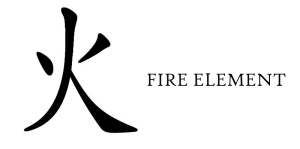
The Heart
According to classical Chinese medicine, the Heart is associated with the element of Fire, and dreaming of fire can indicate weakness in the Heart’s energy. In contrast, excessive Heart energy can manifest in dreams of laughing. However, dreams of mountains, fire, and smoke may occur if the Heart is deficient. These dreams may indicate a need for support and nourishment for the Heart’s energy. As the heart is associated with the fire element, dreaming of fire or red objects may indicate a heart imbalance.
The heart is associated with several emotions:
• Joy: Experiencing joy and happiness is beneficial to the heart.
• Anxiety: Excessive anxiety can cause disharmony in the heart and disrupt its proper function.
• Sadness: Prolonged sadness or grief can affect the heart and lead to various physical symptoms.
• Over-excitement: Over-excitement or excessive stimulation can cause the heart to become overactive, leading to palpitations or other symptoms.
• Lack of enthusiasm A lack of enthusiasm or vitality can also indicate an imbalance in the heart.
In traditional classical Chinese medicine, the Heart is closely associated with the Fire element, which gives us a passion for life. The Heart is also linked with the emotion of joy, and the absence of joy can indicate imbalances in the Heart’s energy. Dreams of laughing and singing are often associated with a healthy Heart. Still, excessive laughter can indicate an excess of Fire energy in the Heart, which may need to be balanced to promote emotional harmony and well-being. By paying attention to these dream symbols and related imbalances, we can take steps to support Heart health through appropriate treatments, lifestyle changes, and practices that promote emotional balance and relaxation.
If the Heart is Yin Excess:
‣ Fires, flames, and fire-fighting dreams.
‣ Seeing mountain tops smoky.
‣ Dreams of traveling.
‣ Dreaming of oneself burning with fire in the summer season.
If the Heart is Yang Excess:
‣ Strong laughter accompanies anxious feelings.
‣ Scenes of courage and laughing in the face of danger.
• Dreaming of having chest pain
• Dreaming of being chased or pursued
• Dreaming of drowning or suffocating
• Dreams of intimacy or sexuality
The Small Intestine
The Small Intestine is associated with the Fire element and is responsible for separating the pure from the impure and the clear from the turbid, both regarding food digestion and thoughts and ideas. As the Yang counterpart of the Heart, it assimilates nutrients and distributes nourishment throughout the body.
Emotionally, the Small Intestine is related to making clear, rational decisions and communicating and expressing ourselves effectively. When the Small Intestine is out of balance, it can lead to confusion and difficulty in decision-making. Some possible dream scenarios associated with imbalances include:
• Dreaming of being lost in a maze or unable to find your way
• Dreaming of being unable to make a decision or being overwhelmed with choices
• Dreaming of being unable to digest or process information or experiences
• Dreaming of being caught in a trap or unable to escape a difficult situation
• Dreaming of being stuck in a cycle of repeating patterns or habits.
According to traditional texts, specific types of dreams are associated with different types of intestinal parasites. For instance, dreaming about crowds is said to be linked to small intestinal parasites, while dreaming of fights and mutual destruction is associated with long intestinal parasites. Similarly, if a person’s Small Intestine is deficient, they may dream about large cities.
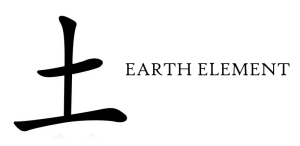
Spleen
In classical Chinese medicine, the Spleen is associated with the Earth element and the emotions of overthinking and trust. When the Spleen is imbalanced, a person may experience excessive mental activity, anxiety, and an inability to let go of negative thoughts. This can lead to physical symptoms such as digestive issues, fatigue, and weakened immunity. The Spleen is also related to clear thinking, focus, and concentration.
The Spleen is not synonymous with the Spleen in Western medicine anatomically or physiologically. Conceptually, Spleen-Stomach mainly involves the digestive system. In classical Chinese medicine, the Spleen transforms food into energy. While some scholars view the characteristics attributed to the Spleen as more closely related to the Pancreas, both organs are encapsulated under the term “Spleen.” Like the Pancreas in Western medicine, the Spleen plays a crucial role in digestion and energy maintenance. When the Spleen is deficient, we may crave more nourishment to sustain our energy levels, which can manifest in our dreams as feelings of hunger.
Examples of the diagnostic significance of dreams in classical Chinese medicine can be seen in the following statements:
• If the Spleen is deficient, one may dream of feeling hungry.
‣ Being in a kitchen but not being able to find anything to eat
‣ Searching for food but never being able to find any
‣ Being extremely hungry but unable to eat
‣ Eating something that tastes bad or is not satisfying
• If the Spleen is Yin excess, one may dream of being in rocky cliffs or vast swamps.
‣ Seeing houses flying in the wind, drifting in the rain, or ruined in storms.
‣ One may also dream of building a house at the end of the summer season.
• If the Spleen is Yang excess, one may dream of hearing music or songs. The body seems heavy; one cannot move, walk, or run.
Traditional texts suggest that if the spleen is deficient, one may dream about constructing a house if the dream occurs during late summer. Conversely, if the Spleen is in excess, one may dream about singing and feeling extremely heavy. Additionally, when the Spleen is deficient, one may dream about mountainous abysses and marshy areas.
Stomach
The Stomach —the Yang counterpart of the Spleen— is associated with the Earth element and the emotions related to the Stomach are worry and anxiety. This is because the Stomach is responsible for processing food and turning it into usable energy, and worry and anxiety can cause the Stomach to become weak or imbalanced. Additionally, overthinking can lead to digestive issues and a lack of appetite. Similar to the spleen, a deficiency in the Stomach can impact digestion, resulting in dreams of consuming large meals.
Dreams associated with stomach problems can include:
• Overeating: Dreams of eating a large amount of food or being unable to stop eating
• Indigestion: Dreams of feeling bloated, uncomfortable, or experiencing indigestion
• Empty stomach: Dreams of feeling hungry or having an empty stomach
• Vomiting: Dreams of vomiting or feeling nauseous
• Dreams of consuming spoiled food
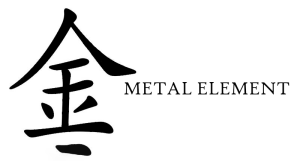
Lungs
In classical Chinese medicine, the Lungs are associated with the Metal element and the emotion of grief or sadness. When Lung energy is deficient, one may experience shortness of breath, coughing, and fatigue. In dreams, this may be expressed as seeing white objects representing the Lungs’ color and experiencing events related to losses or even violence, which may relate to grief and sadness.
The Lungs are connected to the process of letting go and feeling inspired. When the Lung energy is balanced and healthy, a person can take in the new and let go of the old. However, when the Lung energy is imbalanced, a person may experience sadness, unresolved grief, or a sense of being stuck or unable to move on. This can also manifest in dreams, with white objects and events symbolizing grief and a sense of loss. White objects may reflect the struggle to take in enough oxygen.
When the Lung energy is excessive, one may experience coughing, congestion, and breathing difficulties. In dreams, this may be expressed as battles in action or murderous events, which may represent the Lung’s function in defending the body against external pathogens, which can sometimes manifest as a feeling of aggression, hostility, restlessness, or agitation.
Some examples of dreams that may indicate Lung problems include:
• Dreams of being in a vast, spacious area, such as a desert or empty room
• Dreams of being unable to breathe, such as drowning or suffocating
• Dreams of being chased or hunted, particularly in a wooded area
• Dreams of crying or weeping
• Dreams of being unable to speak or shout
According to traditional texts, when the Lungs are in excess, one may dream of weeping. In contrast, if the Lungs are deficient, one may dream of white objects or bloody killings. One may dream of battles and war if the dream occurs during Autumn.
Furthermore, when the Lungs are in excess, one may have dreams of worry, fear, crying, or flying. Conversely, when the Lungs are deficient, one may dream of flying and seeing peculiar objects made of gold or iron.
Large Intestine
The Large Intestine —the Yang counterpart of the Lungs— is associated with the Metal element and the emotions of releasing and letting go. The Large Intestine eliminates waste products from the body and separates the pure from the impure. This process is likened to the ability to discern what is valuable and worth keeping in life and what needs to be released or let go. Imbalances in the Large Intestine can manifest emotionally as difficulty with letting go, excessive attachment, or an inability to move on from a past event or relationship.
Here are some examples of dreams that may indicate imbalances in the Large Intestine:
• Dreaming of constipation or struggling to have a bowel movement
• Dreaming of being unable to let go of something, such as holding onto an object or a person
• Dreaming of being surrounded by clutter or unable to clean up a messy space, as this organ is associated with keeping things organized and clean.
According to traditional texts, one may dream of open fields when the Large Intestine is deficient.
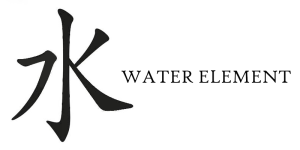
Kidneys
According to classical Chinese medicine, the Kidneys are vital in regulating the body’s water metabolism. They are also associated with the Water element and the emotion of fear (or the absence of fear). The Kidney is the foundation of our body’s Yin and Yang energies and is related to our ability to adapt to change, be courageous, and feel secure. The Kidneys are also associated with our genetic health and are seen to determine our general well-being.
Some emotions associated with the Kidney include:
• Fear: excessive fear or anxiety, feeling insecure or vulnerable.
• Courage: the ability to confront fear and take action despite it.
• Willpower: the drive to endure and overcome obstacles.
• Wisdom: the ability to make wise decisions and adapt to changing circumstances.
• Creativity: the ability to bring new ideas and concepts into existence.
When the Kidneys are weak, this can manifest in dreams of swimming after a shipwreck or being immersed in water, especially if the dream takes place in winter. The symbolism of water in these dreams may indicate a need for nourishment and support for the Kidney energy. Additionally, dreaming of being scared while plunging into the water can indicate a deficiency in Kidney energy.
• If the Kidney is Yin excess: Passing through vast waters in fear and anguish. Floods, people drowned or people trapped underwater, submerged trees. Sailing trips, being on the edge of rocky cliffs by the ocean, dizziness. Dreams of sexual dysfunction or impotence.
• If the Kidney is Yang excess: Inability to unfasten belt. Fracture of the spine, inability to bring two halves of the body together. The breaking of the connection between the kidneys and the lower back, incompatibility of the kidneys with the lower back.
• If the Kidney is Qi deficient: Dreams of feeling lost or disconnected from one’s surroundings, leading to a lack of grounding or stability.
According to traditional texts, if the Kidneys are weak, one may dream about swimming after a shipwreck. If the dream occurs during winter, one may dream about plunging into the water and feeling scared. Moreover, when the Kidneys are in excess, one may dream about the spine being detached from the body. Conversely, when the Kidneys are weak, one may dream about being immersed in water.
Urinary Bladder
The Urinary Bladder —the Yang counterpart of the Kidneys— is associated with the Water element and is seen as the reservoir for the body’s fluids. Emotions related to the urinary bladder include fear, anxiety, and insecurity, as the Water element is closely linked to the emotion of fear. When the urinary bladder is out of balance, it can manifest in dreams related to water or drowning and dreams related to fear or insecurity.
Here are some examples:
• Dreaming of frequent urination, difficulty urinating, or being unable to find a toilet
• Dreaming of swimming in deep water or drowning
• Dreaming of being lost in a maze or trapped in a small space
• Dreaming of running away from something or being chased by someone
According to traditional texts, when the Bladder is deficient, one may have dreams of traveling.
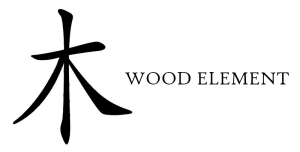
Liver
In classical Chinese medicine, different emotions and elements are associated with specific organs. The Liver is associated with a wide range of emotions. The Liver is responsible for the smooth flow of Qi (energy) throughout the body. When this flow is disrupted or blocked, it can manifest as emotional imbalances.
The liver is mainly associated with the emotion of anger. However, this does not mean that the liver is solely responsible for feeling angry or that anger only affects the liver. Instead, it means that excessive or repressed anger can impact the liver’s functioning and lead to imbalances in the body. The liver is also associated with other emotions like frustration, irritability, and resentment.
Excess Liver energy may manifest in dreams of anger. On the other hand, the Liver is associated with the Wood element and the energy of springtime, which relate to creativity, vision, and drive. Dreams about forests may indicate a deficiency in this energy and express a need to replenish it.
• Dreaming of anger or aggression: When there is excess in the Liver, one may dream of experiencing anger.
• Dreaming of forests: When the Liver is deficient, one may dream of mountain forests. This may indicate a need for more creativity and vision.
• Dreaming of twisting or tangled objects: When the liver is congested or stagnant, this flow may be disrupted, resulting in dreams of twisting objects or tangled objects.
• Dreaming of Dragons: In the Five Element theory, different organs are associated with different animals. The liver is associated with the dragon. Therefore, dreaming of dragons or other animals may indicate a liver imbalance.
According to traditional texts, if the Liver is deficient, one may dream about highly fragrant mushrooms. If the dream occurs in Spring, one may dream about lying under a tree and being unable to get up.
Gall Bladder
The Gallbladder —the Yang counterpart of the Liver— is closely related to decision-making and taking action. Therefore, dreams related to Gallbladder problems may involve indecisiveness or being stuck in a situation.
Here are a few examples:
• Dreaming of being trapped or stuck in a tight space, such as a narrow tunnel or a small room, which can represent the blocked bile ducts caused by gallstones.
• Dreaming of being attacked or chased by aggressive animals, such as a lion or a tiger, which can represent the buildup of anger and frustration that can lead to gallbladder problems.
• Dreaming of being lost or confused in a maze.
• Dreaming of being on a cliff and unable to move forward or back
• Dreaming of falling from a high place or experiencing vertigo can represent the dizziness and nausea that can occur with gallbladder problems.
According to traditional texts, the Gall Bladder has an influence on the quality and length of sleep. If it is deficient, a person will wake early in the morning and be unable to fall asleep again. When the Gall Bladder is deficient, one dreams of fights, trials, and suicide.
Summary
Balancing emotions and addressing emotional imbalances is essential to classical Chinese medicine, as emotional health is integral to physical health. By interpreting the symbols in our dreams, we can gain insight into potential imbalances within our bodies and take steps to promote optimal health and wellness. These examples illustrate how specific symbols in dreams can indicate the state of different organs in the body and reveal potential imbalances that need to be addressed. However, it is essential to note that these dreams alone are insufficient to diagnose problems and should be considered in conjunction with other physical and emotional symptoms. It is important to note that these dreams may not always be directly related to physical health problems, and it is recommended to seek medical attention if experiencing persistent symptoms.
